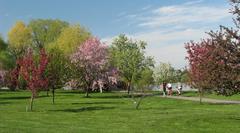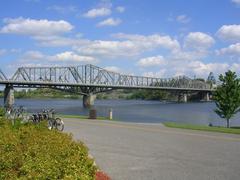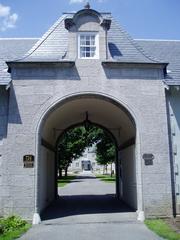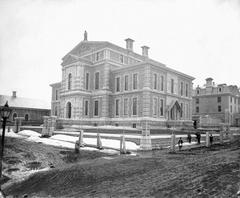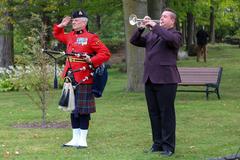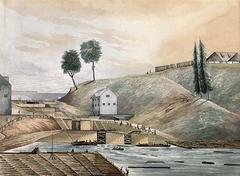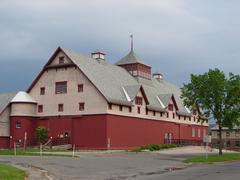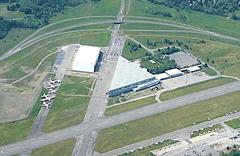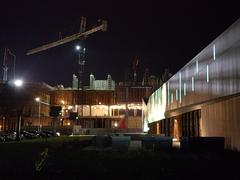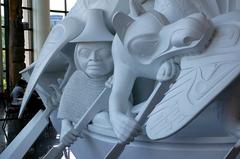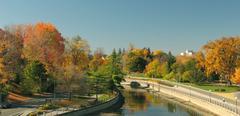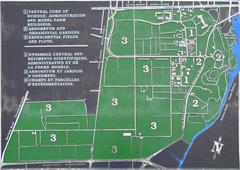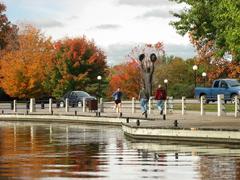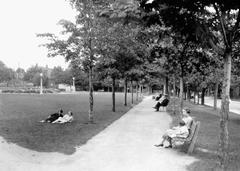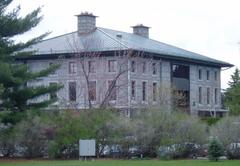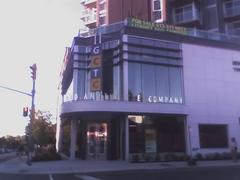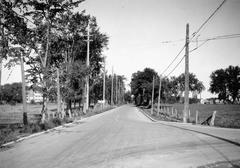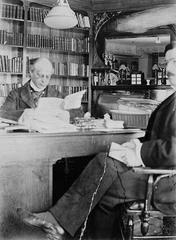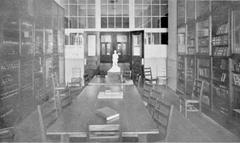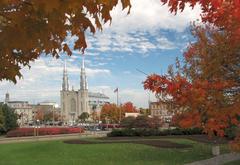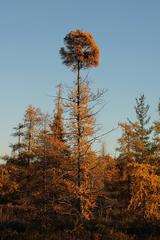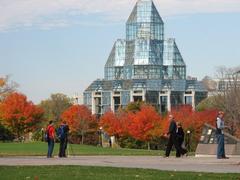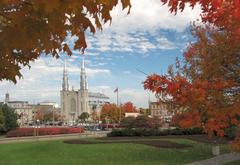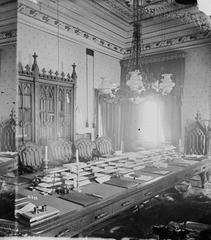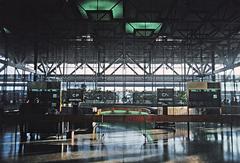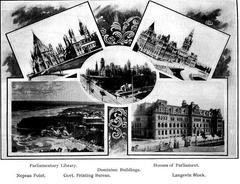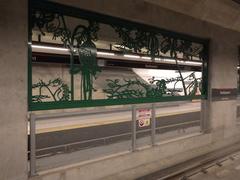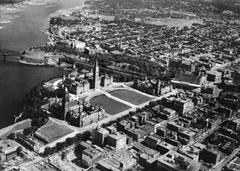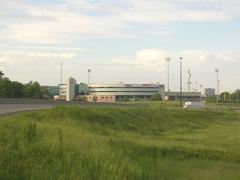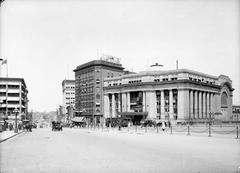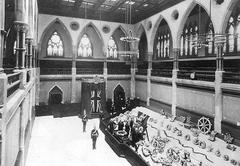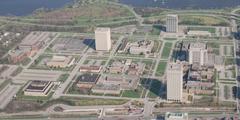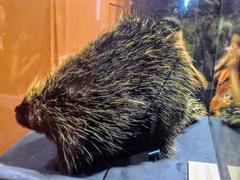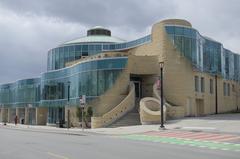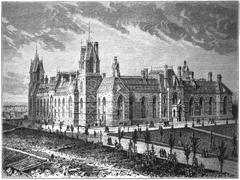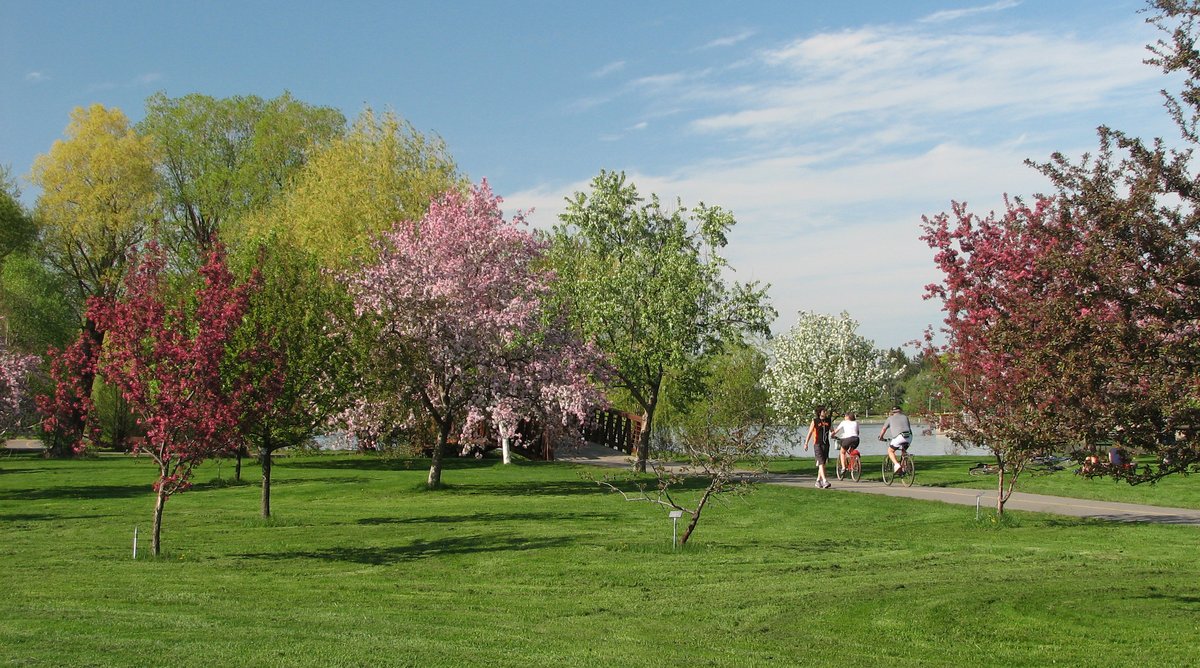
Guide to Visiting Dominion Arboretum in Ottawa
Publication Date: 23/07/2024
Introduction to Dominion Arboretum
The Dominion Arboretum in Ottawa, Canada, stands as a testament to the rich history and scientific advancements in the field of agricultural research and biodiversity conservation. Established in 1889, the arboretum is one of the oldest in North America and is located within the Central Experimental Farm. It was initially created to test the adaptability of various tree species to the Canadian climate, providing critical data that shaped the country’s forestry and agriculture practices (Agriculture and Agri-Food Canada). Today, the Dominion Arboretum is home to over 10,000 specimens of trees, shrubs, and plants from around the globe, organized in a layout inspired by the English landscape garden style (National Capital Commission). Beyond its scientific contributions, the arboretum serves as an outdoor classroom for students of botany, horticulture, and environmental science, offering educational programs, workshops, and guided tours (Friends of the Central Experimental Farm). Visitors to the arboretum can enjoy its scenic pathways, diverse plant collections, and seasonal events, making it a beloved attraction in Ottawa.
Contents
- Introduction
- History and Significance of Dominion Arboretum
- Establishment and Early Years
- Role in Agricultural Research
- Expansion and Development
- Cultural and Educational Significance
- Outdoor Classroom and Programs
- Contributions to Biodiversity and Conservation
- Visitor Information
- Visiting Hours and Tickets
- Travel Tips and Accessibility
- Nearby Attractions
- Historical Landmarks and Memorials
- Community Engagement and Volunteerism
- Recognition and Awards
- Future Prospects and Challenges
- Visitor Experience
- Frequently Asked Questions (FAQ)
- Conclusion
History and Significance of Dominion Arboretum
Establishment and Early Years
The Dominion Arboretum, located within the Central Experimental Farm, was established in 1889 to advance agricultural science by testing various tree species’ adaptability to the Canadian climate. This initiative provided invaluable data for forestry and agriculture (Agriculture and Agri-Food Canada).
Role in Agricultural Research
In the early 20th century, the arboretum played a pivotal role in developing hardy tree species resilient to Canada’s harsh winters. Extensive studies on tree growth, disease resistance, and soil compatibility significantly influenced Canada’s forestry practices and policies (Canadian Forest Service).
Expansion and Development
The arboretum now boasts over 10,000 specimens of trees, shrubs, and plants from around the globe. Its layout, inspired by the English landscape garden style, aims to merge scientific research with aesthetic beauty (National Capital Commission).
Cultural and Educational Significance
Outdoor Classroom and Programs
The Dominion Arboretum serves as an outdoor classroom for botany, horticulture, and environmental science students. It offers educational programs, workshops, and guided tours, enriching visitors’ understanding of plant science and conservation (Friends of the Central Experimental Farm).
Contributions to Biodiversity and Conservation
The diverse plant collection at the arboretum plays a crucial role in biodiversity conservation. It serves as a living repository of genetic material, aiding the preservation of rare and endangered species. Its ex-situ conservation efforts have received international recognition (Botanic Gardens Conservation International).
Visitor Information
Visiting Hours and Tickets
The Dominion Arboretum is open daily from sunrise to sunset. Admission is free, but donations are welcome to support ongoing conservation efforts. Guided tours may require a nominal fee and should be booked in advance through the arboretum’s official website (National Capital Commission).
Travel Tips and Accessibility
Located in Ottawa, the arboretum is easily accessible by public transportation and offers ample parking for visitors. The paths are wheelchair accessible, and there are several rest areas throughout the site. Visitors are encouraged to wear comfortable walking shoes and bring water.
Nearby Attractions
While visiting the Dominion Arboretum, consider exploring nearby attractions such as the Canada Agriculture and Food Museum, the Fletcher Wildlife Garden, and the Rideau Canal. These sites offer additional educational and recreational opportunities.
Historical Landmarks and Memorials
The arboretum features several historical landmarks and memorials, including the Fletcher Wildlife Garden, established in 1990 to honor entomologist James Fletcher. This garden showcases native plants and provides a habitat for local wildlife (Fletcher Wildlife Garden).
Community Engagement and Volunteerism
Community involvement is vital to the arboretum’s success. The Friends of the Central Experimental Farm, a non-profit organization, plays a key role in its maintenance. Volunteers engage in activities like planting, pruning, and event organization (Friends of the Central Experimental Farm).
Recognition and Awards
The Dominion Arboretum has received numerous awards for its contributions to horticulture, conservation, and public education, including accolades from the Canadian Society for Horticultural Science and the American Public Gardens Association (Canadian Society for Horticultural Science).
Future Prospects and Challenges
Facing challenges such as climate change, urban development, and funding constraints, the arboretum remains committed to sustainability through ongoing research and conservation efforts. Future plans include expanding the plant collection, enhancing visitor facilities, and increasing community outreach (National Capital Commission).
Visitor Experience
Visitors can enjoy scenic pathways, diverse plant collections, and educational exhibits. Seasonal events, such as the annual tree planting ceremony and guided nature walks, attract thousands of visitors yearly, making it a cherished destination in Ottawa (Ottawa Tourism).
Frequently Asked Questions (FAQ)
What are the visiting hours of Dominion Arboretum? The arboretum is open daily from sunrise to sunset.
Are there any admission fees? Admission is free, but donations are appreciated.
How can I get tickets for a guided tour? Guided tours can be booked in advance through the arboretum’s official website.
Is the arboretum wheelchair accessible? Yes, the paths are wheelchair accessible.
Conclusion
The Dominion Arboretum’s rich history, scientific contributions, and cultural significance make it an essential institution in Ottawa. Its ongoing efforts in research, conservation, and public engagement continue to enhance its legacy and impact on the community. Plan your visit today to experience this unique and enriching destination.
Sources and References
- Agriculture and Agri-Food Canada. (n.d.). Central Experimental Farm. Retrieved from Agriculture and Agri-Food Canada
- Canadian Forest Service. (n.d.). Retrieved from Canadian Forest Service
- National Capital Commission. (n.d.). Dominion Arboretum. Retrieved from National Capital Commission
- Friends of the Central Experimental Farm. (n.d.). Retrieved from Friends of the Central Experimental Farm
- Botanic Gardens Conservation International. (n.d.). Retrieved from Botanic Gardens Conservation International
- Fletcher Wildlife Garden. (n.d.). Retrieved from Fletcher Wildlife Garden
- Ottawa Tourism. (n.d.). Retrieved from Ottawa Tourism
